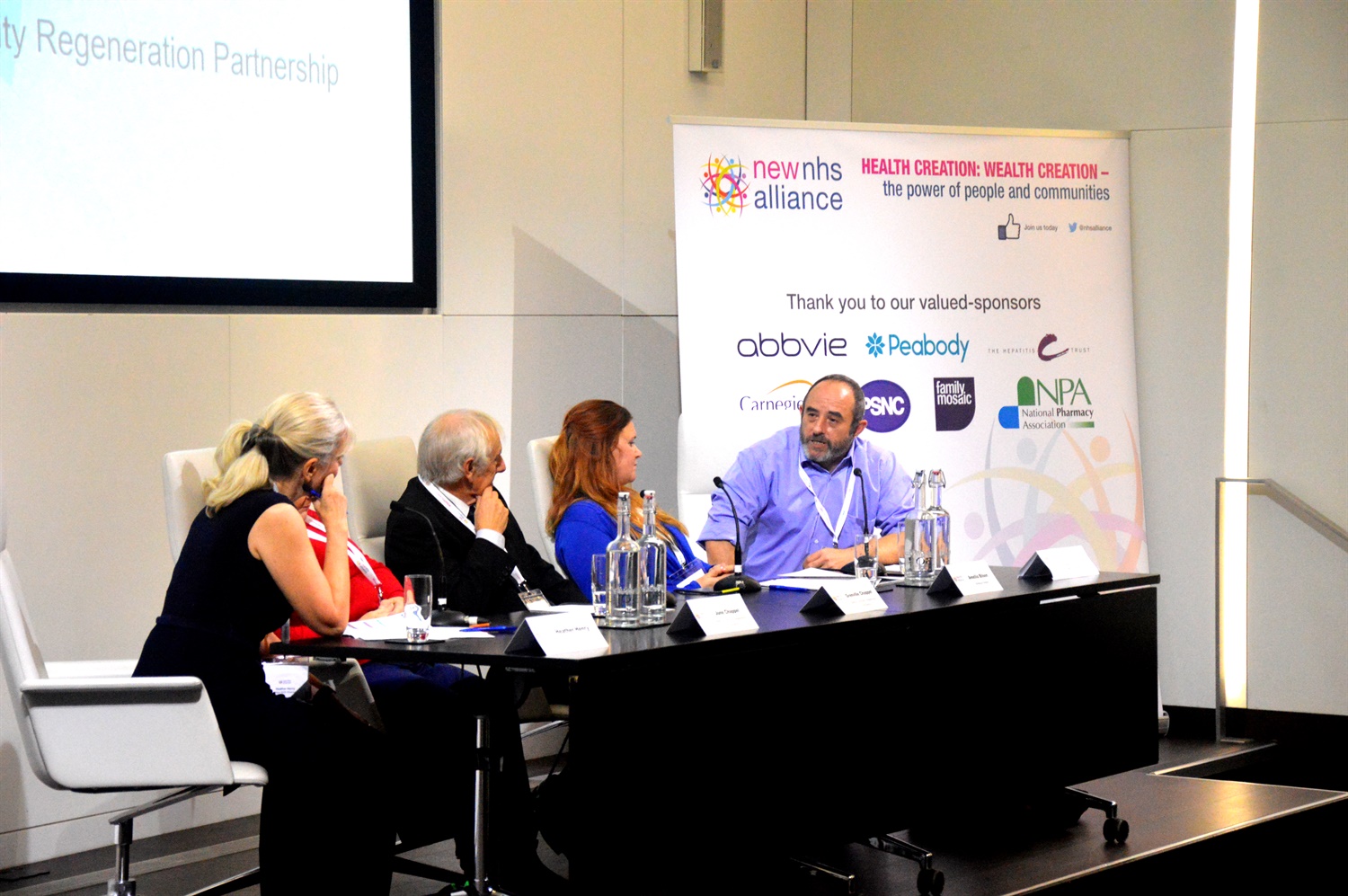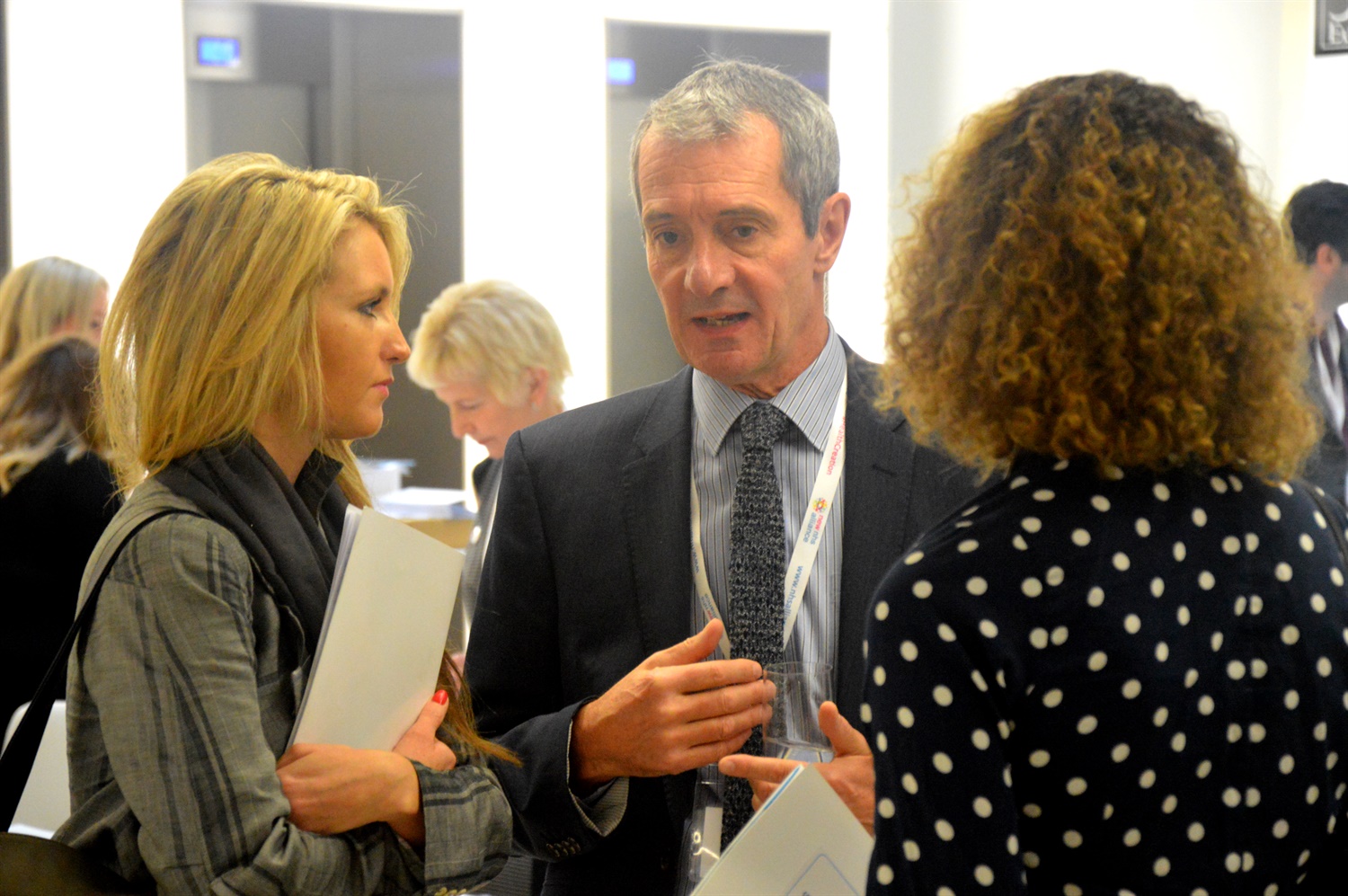07.02.18
NNHSA: Calling for a new focus on wellness
Source: NHE Jan/Feb 18
Dr Brian Fisher MBE, vice-chair of the New NHS Alliance (NNHSA), looks back at the organisation’s action summit – an event known for generating disruptive ideas that are catalysts for real change.
On 6 December 2017, the NNHSA held its second annual action summit at the Royal College of GPs in London. This revolutionary event was attended and supported by over 160 policymakers and practitioners in health, local government, criminal justice and housing, providers and commissioners, community groups, patient organisations and those that enable, deliver and have lived experience of health creation.
Entitled ‘Health Creation: Wealth Creation – the power of people and communities,’ the interactive summit explored how health creation can contribute to both the health and the economic wellbeing of people, communities and the society in which we live. It also showcased many examples in which investment in health-creating initiatives has delivered economic and social benefits to the NHS and other local organisations.
In setting up the day, Victoria Macdonald, health and social care correspondent for Channel 4 and the summit chair, said: “We live in one of the richest nations in the world. Yet those living in poorer areas of our country die earlier, and suffer years of more ill health, than those living in our wealthier areas.
“These health inequalities represent a continuing social injustice, make demands on health and public services, and limit our population’s capacity to contribute positively to society and the economy. The question to the summit is, can health creation help to achieve this?”
The conclusion from the summit was a resounding yes.

High levels of optimism
Setting out the nature of the problem, several community leaders shared their experience of the limitations of formal healthcare. They also highlighted the heavy burden of judgement that ‘lifestyle advice’ can place on people. Amelia Bilson, chair of Middleport Matters, said: “Don’t tell me how to lead a healthy life – you’re assuming I don’t already know.”
Dr Felicity Thomas, senior research fellow at Exeter University, went on to demonstrate the correlation between high rates of anti-depressant use and the most economically disadvantaged parts of England. She explained that we are adopting a medical response to ailments that are caused by the stresses of poverty and adverse social factors, whereas what people really need is a social and structural response.
Among those delegates who attended this session, there was a high level of optimism and appetite for a new approach to better match the problem.
Indeed, these were sentiments echoed by the majority of attendees and contributors. Commenting on this, Heather Henry, chair of NNHSA, said: “I was really struck by the level of support and commitment there is for getting health creation into the mainstream of the health and care sectors, and the urgency of this given the unsustainable pressures our health and care services are under. But they can’t provide the solution unless they understand the root causes of people’s illnesses, and what makes them well.”
Local health and local wealth
In addressing the summit, Duncan Selbie, chief executive of Public Health England (more on page 22), reinforced this point when highlighting that close relationships and having a meaningful job contribute more to keeping people alive than quitting smoking or alcohol, because they help give people control, contact and confidence – the ‘three Cs’ of health creation.
Building on this, while highlighting the link between health and wealth, Neil McInroy, chief executive of the Centre for Local Economic Strategies, asserted: “Health and wealth are joined at the hip. An investment in health, in communities, in people’s lives is an investment in wealth. Because if you’re ill, if you’re not feeling good in yourself, you won’t be going to work in the morning.”
The fact that investment doesn’t always have to be monetary was considered in a session entitled ‘Can health organisations support community enterprise?’. While arguing that they can, Conrad Parke, partnerships and regeneration manager at Sandwell and West Birmingham Hospitals NHS Trust, led a discussion on the role of NHS institutions being part of the local economy and purchasing locally. The conclusion to this discussion was summed up by a tweet from Dr Sebastien Yuen: “Imagine if everything the NHS buys was made locally! The health industry could play a big role in transforming local economies.”

Community pharmacy and medicines optimisation
Delegates also heard about community pharmacy, a sector that is starting to embrace the principles and practice of health creation. During an Excellence Exchange session, Michael Holden, principal associate at Pharmacy Complete, said: “Community pharmacies have always been at the heart of the community’s health, but increasingly this goes beyond the supply of medicines and the supportive advice that accompanies them. There are over 11,500 pharmacies in England; they are often the only accessible healthcare service in a community, and this is particularly true in areas of high deprivation and health inequalities. Many of these have become accredited Health Living Pharmacies (HLP).”
In the session, delegates heard examples of services from Sanjay Ganvir of Green Light Pharmacy in London, who works out in the community with vulnerable groups, and from Robbie Turner of the Royal Pharmaceutical Society on his previous work in West Yorkshire, where the HLP concept was embraced early on and delivered against a range of health-creating services.
The summit also considered ‘health creation and the power of digital.’ Presenting on social media creating networks for people, Anne Cooper, chief nurse at NHS Digital, noted: “Online communities can equally be places where people can work together, sharing experience to tackle health issues. Community does not just mean in a physical sense.”
The role of health creation in medicines optimisation and adherence was also a much-debated topic at the summit. Attendees at this session agreed that while medical knowledge and interventions are part of the solution to peoples’ wellbeing, they are enhanced significantly by the three Cs of health creation.
Presenting a case study on their partnership work in support of hepatitis C testing and treatment among the drug using population, Rachel Halford, deputy chief executive of the Hepatitis C Trust, clearly demonstrated how adopting health-creating practices supported this community in accessing, and staying on, treatment.
Wellness Learning Programme
A key feature of the summit that really stood out was the acknowledgement that we need to act now and do things differently. McInroy argued for a fundamentally new social contract for a better Britain, and Merron Simpson, CEO of NNHSA, invited support for a Wellness Learning Programme to equip the health, care and wellbeing sectors as well as communities themselves with the health-creating skills required to play their part in delivering this new contract.
Recognising that the effective evaluation of health-creating practices will be critical to securing this investment, delegates attending a session on ‘measuring health creation; measuring what matters’ debated the challenges and solutions to this.
Summarising the outcomes of this debate, Simon Morioka, joint managing director of PPL, said: “Across a broad and diverse audience there was a resounding ‘yes’ to the idea that we can measure what matters, and that we have a responsibility to do so if we are to overcome barriers to the widespread adoption of health-creating practices. This means developing new measures. It also means making better use of existing ones to drive positive behaviours and investment in ‘what works’ for people, their communities, and those responsible for supporting them.”
Rounding up the successful event while launching the alliance’s new Wellness Learning Programme, chairwoman Henry said: “The summit is another step forward, but we need to maintain momentum. We need everyone who is committed to building a more sustainable health and care system to consider the role they can play in tackling the scandal of health inequalities. This will require a cross-sector ‘wellness workforce’ that is equipped with the skills for health creation, guided by the five features of health-creating practice.”
FOR MORE INFORMATION
W: www.nhsalliance.org